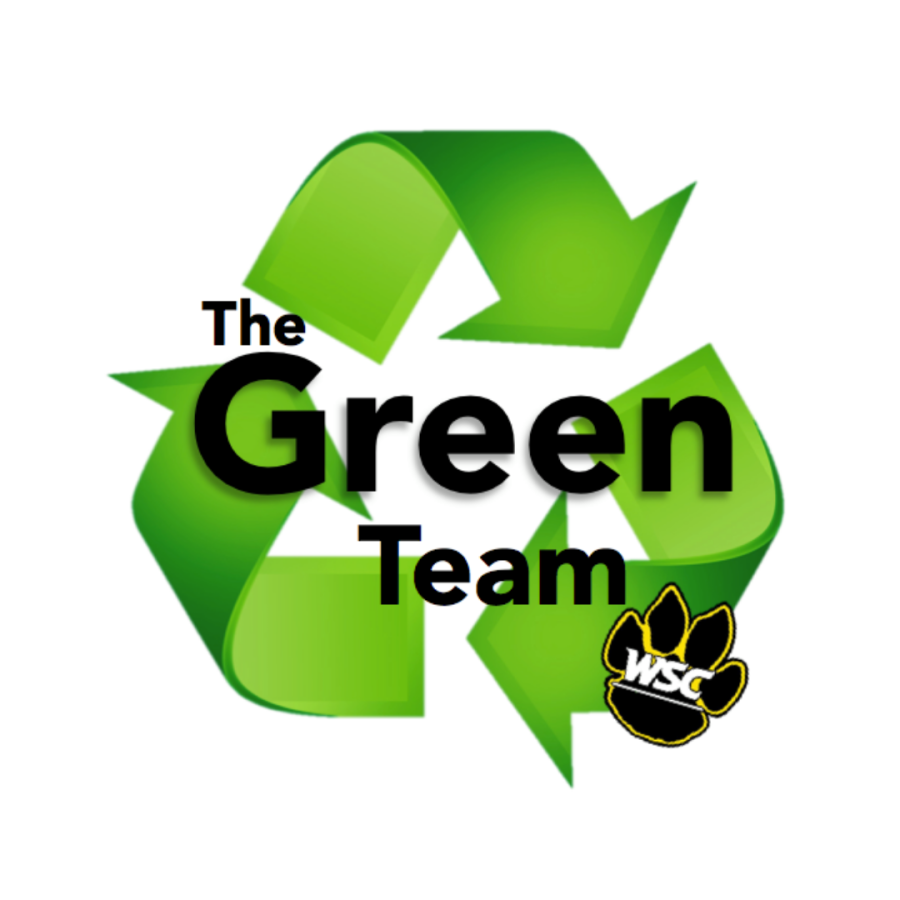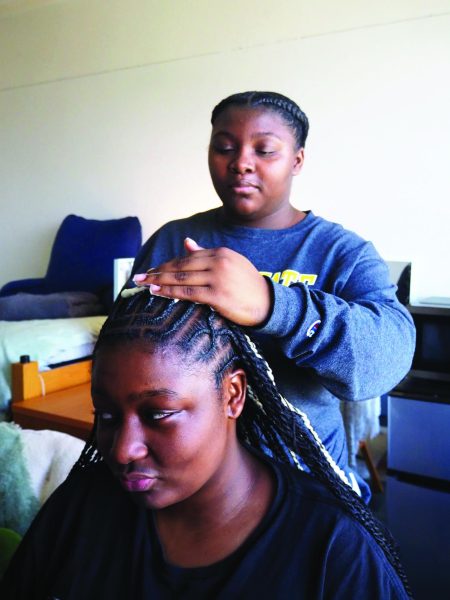Recycling on campus and the WSC Green Team
Recycling is an important part of sustainability on WSC’s campus and having a club like the Green Team is a big part of that. Image from https://www.facebook.com/wscgreenteam
November 4, 2021
Recycling is an important part of sustainability on WSC’s campus and having a club like the Green Team and the campus facility services are a big part of that.
Laura Dendinger, the advisor of the WSC Green Team, said recycling keeps a lot out of the landfill, which leads to less methane gas in the atmosphere
According to Dendinger, the Green Team is a space with likeminded people, who feel strongly about environmentally friendly choices, can network.
Dan Wibben, the assistant director of campus maintenance, said recycling is important for sustainability, and reusing is important for the planet.
Both Dendinger and Wibben think there can be a better job done on campus for recycling and other environmentally friendly steps. Rather that being more awareness on what can be recycled, or it needing to be done in more of a group effort.
It is hard to measure exact amounts collected, but having plenty of outlets to recycle helps make sure that there isn’t a shortage of opportunities.
There is often misconceptions with recycling, no longer can you recycle glass on campus. When recycling bins are contaminated, it sends the whole bin to the landfill, which is why it is so important to know what you’re recycling is recyclable.
It often comes down to communication, learning the best steps and what is recyclable and what isn’t. Even at home it’s confusing knowing what is and isn’t acceptable to be recycled.
“Contamination kind of messes up the whole program when you have inappropriate things in with the recycling program,” Wibben said. “It’s up to us as the consumers to do our best to separate appropriate recycling materials and waste.”
Larger cities often just sort through everything to get all recyclable out, but the colleges program is nowhere near being able to do that, said Wibben.
“If recycling isn’t done appropriately and it ends up being trash and then the college ends up having to pay for trash,” Dendinger said.
According to Wibben, throughout campus there are 45 recycling totes, often in residence halls, academic buildings or places like the Kanter Student Center.
There is one mingled dumpster, meaning any type of recyclable is accepted. Located north of the student center. There is one dedicated dumpster for cardboard, one metal recycling dumpster, and several bins dedicated for more valuable metals, like copper and aluminum all located outside of facility services.
Dendinger said she thinks dorms have more influence, there are plenty of opportunities in the residence halls and around campus. Making sure people are aware of these opportunities is the trick.










